November 18, 2024 | 06:46 GMT +7
November 18, 2024 | 06:46 GMT +7
Hotline: 0913.378.918
November 18, 2024 | 06:46 GMT +7
Hotline: 0913.378.918
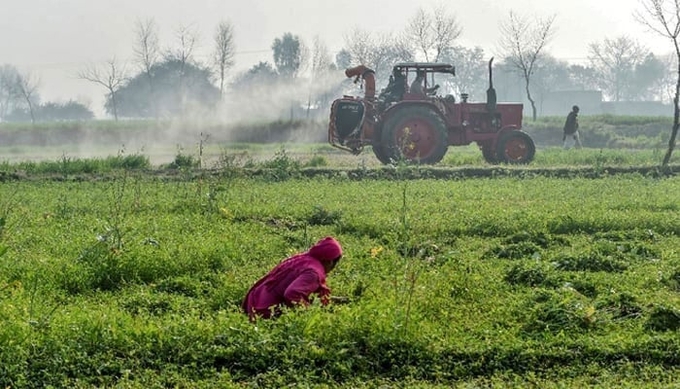
Agriculture Department officials on a tractor spray pesticides to kill locusts as a farmer works in a field in Pipli Pahar village in Punjab in this picture taken on February 23, 2020. Photo: AFP.
Pakistan assured the visiting IMF Mission that agricultural income tax (AIT) would be enforced from January 2025.
According to sources, all provinces agreed to go ahead with approval of legislation on agriculture income tax from their respective provincial assemblies soon. Sources said the provincial governments have kick-started movement towards legislation on Agriculture Income Tax, with Punjab taking lead by for approving the AIT law from the provincial assembly.
The Khyber-Pakhtunkhwa government is ready to present the bill in the assembly soon. It would be interesting to see how Sindh would move ahead as the PPP had opposed it in the Punjab Assembly. Pakistan had already missed out structural benchmark to get approval on the AIT by end of October 2024, despite signing an agreement with the IMF. Now it has decided to get its approval from provincial assemblies and start collection from Jan 1, 2025.
According to sources, the IMF reviewed the measures taken by the provinces on the AIT. The delegation was informed that currently Rs8 billion was being collected from agricultural taxes across the country; the potential of agricultural taxes in Pakistan was Rs2,300 billion annually, and the initial collection was estimated at Rs1,050 billion.
Discussions were also held between the IMF mission and the provinces regarding taxes on livestock. The IMF had expressed two major concerns related to FBR’s tax collection target of Rs12,970 billion and external financing gap of $2.6 billion, faced by Pakistan for the current fiscal year. Sources said the Fund mission was assured of meeting external financing gap of $2.6 billion.
Sources said the FBR’s tax collection target of Rs12,970 billion would remain unchanged and the government assured the IMF that a presidential ordinance would be promulgated for enforcement measures, including freezing of bank accounts, slapping a ban on purchasing new vehicles and plots, and investment in stock market for non-filers. This ordinance has been sent to the law ministry for vetting, and the Cabinet Committee on Legislative Business had been deliberating upon it. It is expected that the ordinance would be promulgated anytime soon within the ongoing month.
According to sources, the IMF delegation obtained details of the performance of all sectors from Pakistani authorities and the finance ministry assured that the shortfall in tax collections in the first four months would be made up in the coming months.
According to the report, the delegation was convinced of the provincial surplus budget, and there was partial success on agricultural tax. It was also agreed to hire consultants to implement the provincial fiscal agreement.
Amid serious concerns, assessed by the IMF over a ‘mid-course correction’ on the budgetary framework and increased solarisation, Pakistani authorities claim that the IMF endorsed turning Punjab’s deficit into surplus for the first quarter of the current fiscal year.
This course correction could be witnessed so massive as statistical discrepancy of Rs378 billion was used for making correction of Rs200 billion that turned the deficit of Rs160bn of Maryam Nawaz-led provincial government in Punjab into surplus of Rs40 billion for the first quarter (July-Sept) period of fiscal year 2024-25.
The finance ministry issued an official statement just at twilight of conclusion of the IMF visiting team’s five-day stay in Islamabad for making assessment of the key economic developments. “With concurrence of the Fund, the Ministry of Finance has updated the revised figures at the website showing a provincial surplus of Rs40 billion for Punjab,” said the ministry. It will be quite interesting how the IMF will respond to it officially.
The IMF Mission has left Islamabad after holding five-day talks with Pakistani authorities, but they did not issue any formal statement.
The finance ministry endorsed the views of Punjab government on achievement of a provincial surplus of Rs40bn during Q1 for FY 2024-25. The Punjab government remained one of the most important contributors to provincial surplus during the recent years; for FY 2024-25, it budgeted a provincial surplus of Rs630 billion as agreed with the IMF. According to a statement, issued by the finance ministry on Friday, “It is highlighted that the MoF shared the updated Q1 fiscal operations figures with the IMF on 14th November, 2024. With concurrence of the Fund, the MoF has updated the revised figures at its website, showing a provincial surplus of Rs40 billion for Punjab.
“It is further pointed out that as per the revised figures, agreed with the Fund, the Government of Pakistan has managed to achieve a cumulative provincial surplus of Rs360 billion against a target of Rs342 billion agreed with the IMF for Q1 for FY 2024-25,” the statement concluded.
One top official said the IMF might issue a press statement after returning to Washington and holding consultation with their top management. Therefore, it might take a couple of days. There are chances that the Fund staff might prefer to issue statement on Saturday morning, but one source close to IMF said they might consult and took a couple of days for issuing a brief statement on their visit to Pakistan.
(The News)
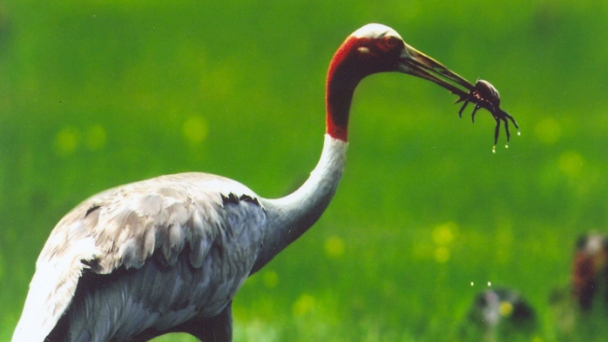
(VAN) The training class provides knowledge for trainers on communication work as well as policies and solutions in the work of recovering, protecting, and developing cranes.
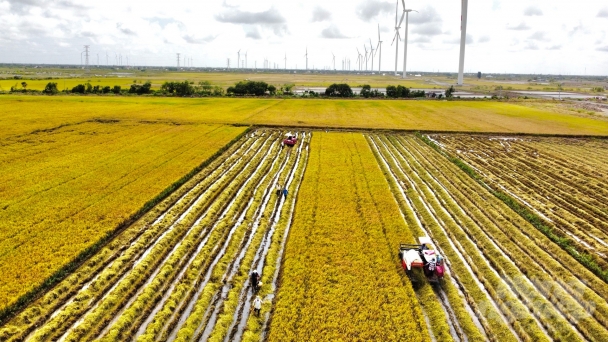
(VAN) Bac Lieu will implement the production of 28.000 hectares of specialized high-quality, low-emission rice, with the goal of increasing the area to around 46.000 hectares by 2030.
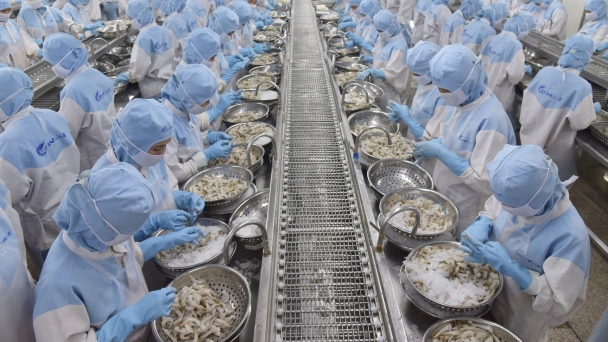
(VAN) The emissions per kilogram of shrimp in small-scale processing facilities are higher than those in large-scale facilities.
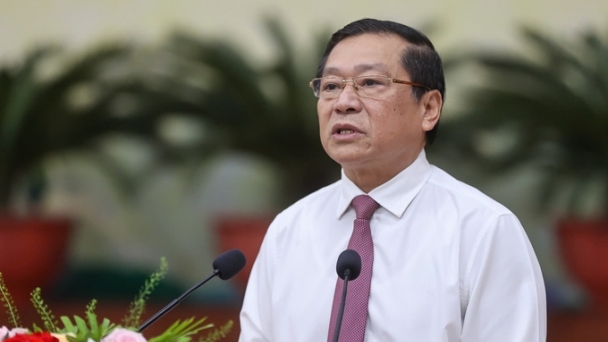
(VAN) The national scientific conference "A new era of Vietnam's rise – Theoretical and practical issues" took place on the morning of November 15.
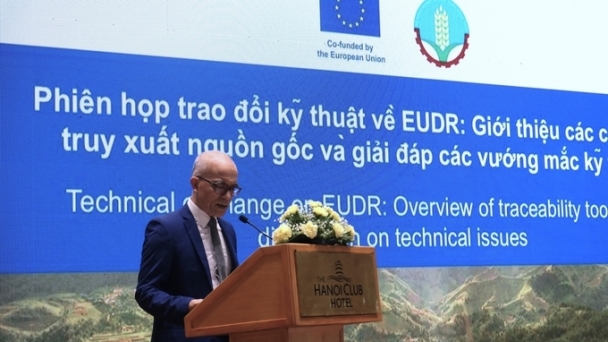
(VAN) The technical seminar on EUDR in Hanoi emphasizes international cooperation, promoting sustainable and transparent supply chains to meet EU regulations.
/2024/11/15/5518-2-204727_913.jpg)
(VAN) Tra Que Vegetable Village has surpassed more than 260 registration documents from 60 countries to be honored as the world's best tourist village in 2024.